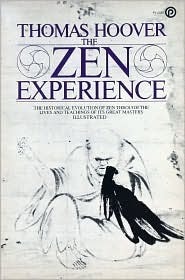Cancer Support
In reply to the discussion: Guilt [View all]Bernardo de La Paz
(60,320 posts)It is not easy to stop indulging in guilt, especially unearned guilt.
But practice makes better (not perfect). Every time guilt comes up, say to yourself "Hello my old friend. Bye." and then move on. It will come back. Repeat yourself. Open a metaphorical window in your mind and let a metaphorical breeze blow it out. (Easy in my case: I just have to open my eyes and ears and a breeze wafts through ![]() ). The main thing is to not fight guilt (or other unwelcome emotions) but rather to let go of them. Yes, it is zen and yes it is worth studying a bit. Zen is easy and not easy. It is a philosophy, not a religion. It gets easier by trying. "There is no try. There is only do." Just do it, a bit at a time. Specifics are not important. Meditation is not necessary but helps.
). The main thing is to not fight guilt (or other unwelcome emotions) but rather to let go of them. Yes, it is zen and yes it is worth studying a bit. Zen is easy and not easy. It is a philosophy, not a religion. It gets easier by trying. "There is no try. There is only do." Just do it, a bit at a time. Specifics are not important. Meditation is not necessary but helps.
PDF: https://www.arvindguptatoys.com/arvindgupta/zenmind.pdf (don't miss the fly) Suzuki Roshi said he loved the Americans' attitude because it was open and fresh. You might like to read the prologue, then skip section 1 (meditation) and read 2, Right Attitude, and 3, Right Understanding, first.
Audio Book:
(excerpt from prologue, emphasis added)
dualistic. Our "original mind" includes everything within
itself. It is always rich and sufficient within itself. You should
not lose your self-sufficient state of mind. This does not mean
a closed mind, but actually an empty mind and a ready mind.
If your mind is empty, it is always ready for anything; it is
open to everything. In the beginner's mind there are many
possibilities; in the expert's mind there are few.
P R O L O G U E 2 1
If you discriminate too much, you limit yourself. If you
are too demanding or too greedy, your mind is not rich and
self-sufficient. If we lose our original self-sufficient mind, we
will lose all precepts. When your mind becomes demanding,
when you long for something, you will end up violating your
own precepts: not to tell lies, not to steal, not to kill, not to
be immoral, and so forth. If you keep your original mind,
the precepts will keep themselves.
In the beginner's mind there is no thought, "I have at-
tained something." All self-centered thoughts limit our vast
mind. When we have no thought of achievement, no thought
of self, we are true beginners. Then we can really learn some-
thing. The beginner's mind is the mind of compassion. When
our mind is compassionate, it is boundless. Dogen-zenji, the
founder of our school, always emphasized how important it is
to resume our boundless original mind. Then we are always
true to ourselves, in sympathy with all beings, and can ac-
tually practice.
Thomas Hoover's book is another favourite of mine. It exposes you to zen by going through it's history in China ( "chan" ) and Japan. Well written with illustrative anecdotes. Available on line and in Kindle editions as well as books.
https://www.gutenberg.org/ebooks/34325
